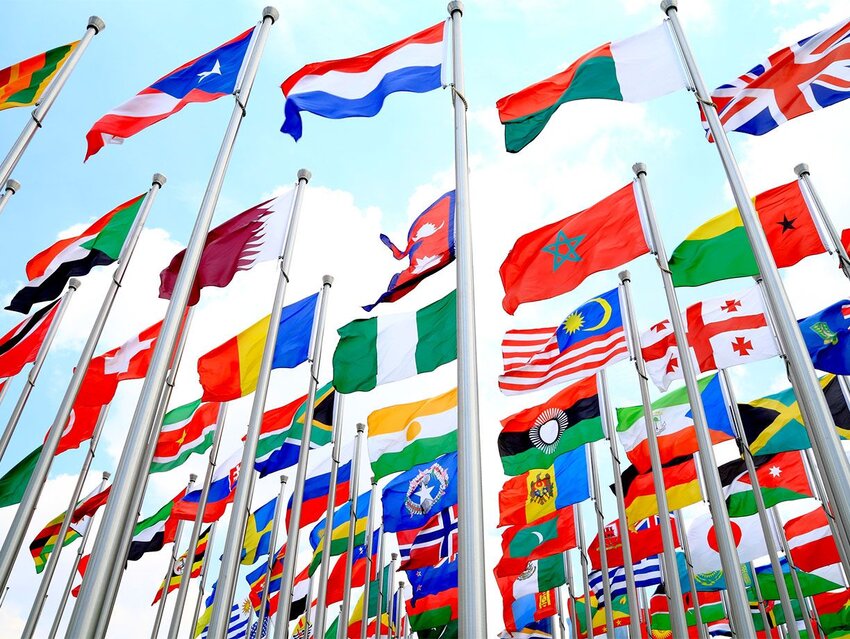Some languages are not known for their brevity. German, for example, has famously long words, and anyone who has spent time in an IKEA will likely have noted some humorously long Swedish names for relatively simple objects. Why do some languages trend long? In general, it has to do with linguistic rules that allow for constructing words to encompass whole ideas, whereas in English, we would use several words and clauses to communicate the same concept (or perhaps just one simple word).
Agglutinative Languages
In general, there are two methods to form super-long words. One method is used by agglutinative languages, a descriptor that comes from the Latin agglutinationem, literally meaning “act of uniting by glue.” These languages allow speakers to construct unique, extra-long words by adding endless suffixes. For reference, the English language allows for only one suffix, but it’s a fusional language, the other construction method (more on that later).
Most Uralic languages are agglutinative. These languages (most prominently including Hungarian, Finnish, and Estonian) descended from a Proto-Uralic language that existed 7,000 to 10,000 years ago, originating somewhere in Northern Eurasia. To illustrate how this works, consider the Hungarian word megszentségteleníthetetlenségeskedéseitekért, which, at 44 letters, roughly translates to “for your continued behavior as if you could not be desecrated.” It starts with the Hungarian word for “saint,” which is szent, and then takes off from there. This is how it breaks down:
megszentségteleníthetetlenségeskedéseitekért – due to your (plural) cannot-be-desecrated
megszentségteleníthetetlenségeskedéseitekér – your (plural) cannot-be-desecrated
megszentségteleníthetetlenségeskedéseite – his/her cannot-be-desecrated (accusative)
megszentségteleníthetetlenségeskedése – his/her cannot-be-desecrated
megszentségteleníthetetlenségeskedés – cannot-be-desecrated (even more repeatedly)
megszentségteleníthetetlenséges – cannot-be-desecrated (repeatedly)
megszentségteleníthetetlenség – cannot-be-desecrated
megszentségteleníthetetlen – somebody/something that cannot be desecrated
megszentségteleníthetet – he/she might desecrate something
megszentségtelenít – he/she desecrates something
szentségtelenít – he/she is desecrating something
szentségtelen – unholy
szentség – sainthood; holiness
szent – saint (noun); holy (adjective)
People have spread all over the world in the 10,000 years since the Proto-Uralic language was spoken, so even some Indigenous North American languages have roots in Uralic languages, and the lengthy patterns were passed along. The Ojibwe word for blueberry pie is miinibaashkiminasiganibiitoosijiganibadagwiingweshiganibakwezhigan, which, at 66 letters, literally translates to “blueberry cooked to jellied preserve that lies in layers in which the face is covered in bread.”
Fusional Languages
As aforementioned, fusional languages use an alternative method for creating exceptionally protracted words. Germanic languages, including German, Dutch, Danish, English, Swedish, and Icelandic, are fusional languages, as are Russian, Polish, and many other Indo-European languages. While these languages don’t employ endless suffixes as agglutinative languages do, they also don’t usually allow for “noun clusters,” meaning nouns can’t be described by other nouns, as they can in English. For example, in English, “student housing” refers to the dormitories college students live in at school, but Germans have the word Studentenheim, which is a compound (or fusion) of the German words for student (der Student) and home (das Heim). Fusional languages will squish together multiple words to create a new word, rather than stringing together many words to describe a concept.
For several years, the 65-character Rindfleischetikettierungsueberwachungsaufgabenuebertragungsgesetz was the longest German word, introduced in 1999 to literally mean “law delegating beef label monitoring” as part of measures against mad cow disease. But the law was removed from the books in 2013, and with it, the word was gone. Not to worry, though — Germans still have plenty of comically long words to enjoy, including Donaudampfschifffahrtsgesellschaftskapitaenswitwe (49 letters), meaning “widow of a Danube steamboat company captain.”
Featured image credit: 123ArtistImages/ iStock

